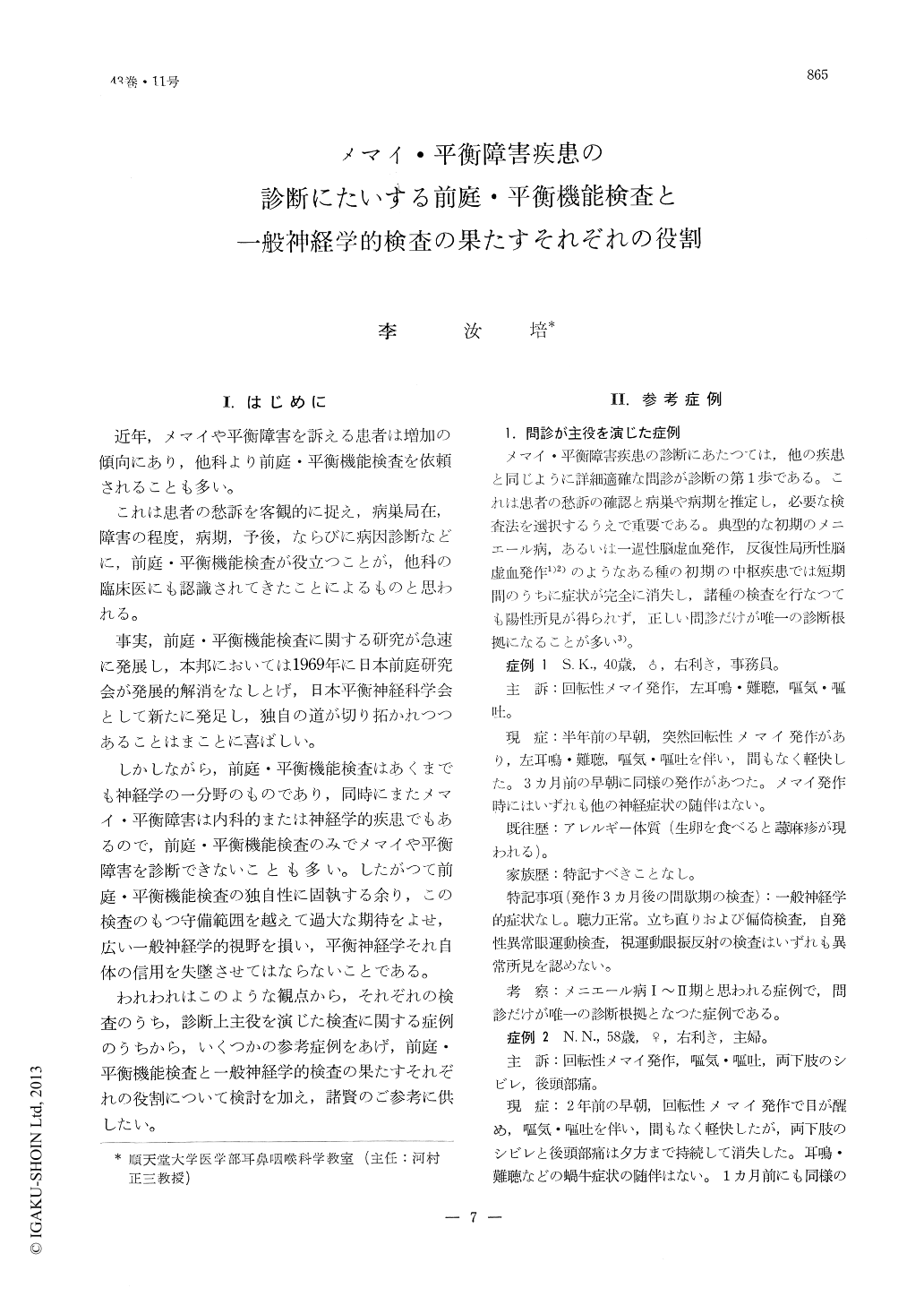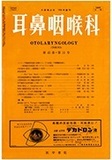Japanese
English
- 有料閲覧
- Abstract 文献概要
- 1ページ目 Look Inside
I.はじめに
近年,メマイや平衡障害を訴える患者は増加の傾向にあり,他科より前庭・平衡機能検査を依頼されることも多い。
これは患者の愁訴を客観的に捉え,病巣局在,障害の程度,病期,予後,ならびに病因診断などに,前庭・平衡機能検査が役立つことが,他科の臨床医にも認識されてきたことによるものと思われる。
事実,前庭・平衡機能検査に関する研究が急速に発展し,本邦においては1969年に日本前庭研究会が発展的解消をなしとげ,日本平衡神経科学会として新たに発足し,独自の道が切り拓かれつつあることはまことに喜ばしい。
しかしながら,前庭・平衡機能検査はあくまでも神経学の一分野のものであり,同時にまたメマイ・平衡障害は内科的または神経学的疾患でもあるので,前庭・平衡機能検査のみでメマイや平衡障害を診断できないことも多い。したがつて前庭・平衡機能検査の独自性に固執する余り,この検査のもつ守備範囲を越えて過大な期待をよせ,広い一般神経学的視野を損い,平衡神経学それ自体の信用を失墜させてはならないことである。
われわれはこのような観点から,それぞれの検査のうち,診断上主役を演じた検査に関する症例のうちから,いくつかの参考症例をあげ,前庭・平衡機能検査と一般神経学的検査の果たすそれぞれの役割について検討を加え,諸賢のご参考に供したい。
In the examination of the patient complaining of vertigo or disorders of equilibrium, it is quite often, that neurological common neurological tests alone may be inadequate in establishing the diagnosis. In such cases neurotological tests should be conducted which may aid the establishment of the localization of the disorder, the degree of the involvement and the prognosis.
However, the neurotological tests are considered as parts of the general neurological tests and there are some cases that may be resistant to all of these tests.
The examiner should have these facts in his mind.

Copyright © 1971, Igaku-Shoin Ltd. All rights reserved.


